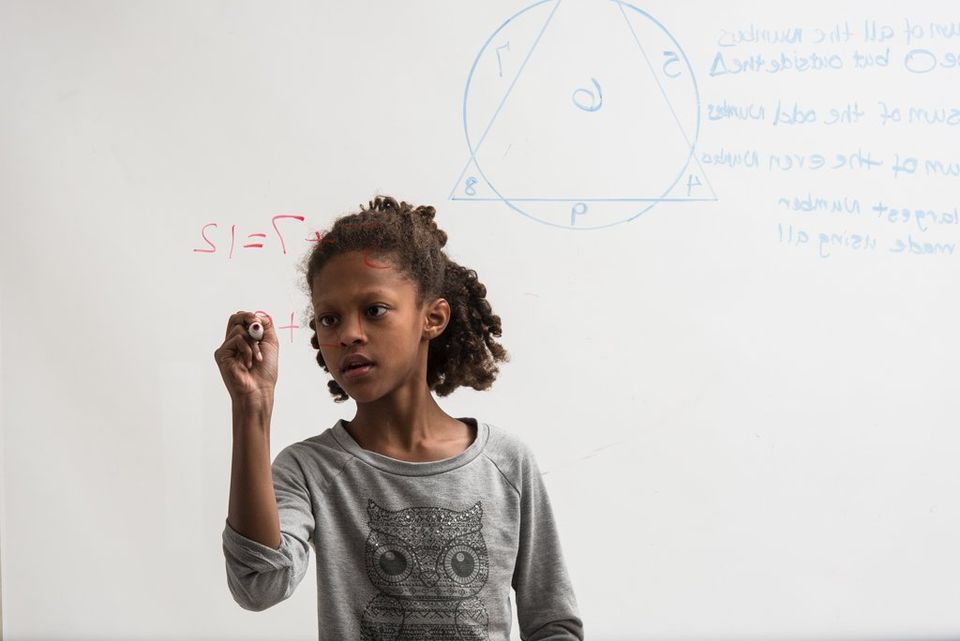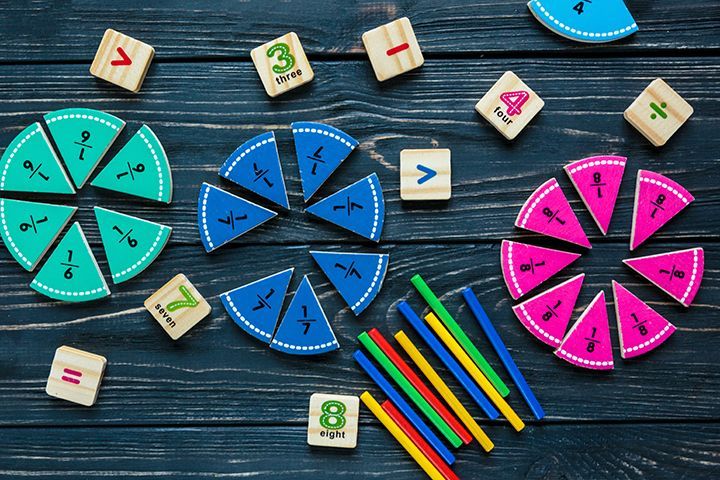by Angela McIver, PhD
I used to believe that older children who struggle in math do so because they did not master what was taught in elementary school.

I have interviewed hundreds of students all over the county about their understanding of basic math concepts. What I’ve learned in these interviews has fundamentally changed the way I think about teaching and learning math. I’ve learned that students are failing to find success in algebra and beyond, not because of the math they fail to learn in high school but because of the math they fail to learn in elementary school.
In my years since completing graduate school, I have worked with hundreds of middle and high school math teachers to share what I have learned about the ways students misunderstand basic math. As part of my work with these teachers, I always ask what elementary math skills they value most. I often phrase my question this way "If there were only 3 math skills that children could master by the end of elementary school, what would you want those math skills to be?" Through these conversations, I have discovered a pattern that has been reproduced consistently in workshops I have conducted across the country.
At the outset of my workshops, I ask participants to provide an elementary math skill they believe students should master by the time they leave 5th grade. I record the skill on chart paper and then ask the next teacher to offer another skill. Each teacher must provide a new skill to add to the list. At the end of the exercise, we often have 20 or more discrete math skills listed (such as, telling time on an analog clock; converting units of measure, algorithms etc).
At this point, I tell the participants that they must now take this list and come up with the top 3 elementary math skills as a group. In the more than 10 years that I have been conducting these sessions, the answer NEVER changes. The Top 3 elementary math skills (as determined by middle and high school math teachers) are ALWAYS:
- Basic Fact Automaticity- Students should “see it/know it” for all basic addition subtraction, multiplication and division facts. (This is the equivalent of sight word recognition in reading.)
- A deep and flexible understanding of fractions and operations with fractions (addition, subtraction, multiplication and division)
- Strong reasoning skills (as in “does this answer make sense to me”?).
Unfortunately, this list has NEVER been reproduced when I conduct the exact same exercise with elementary school teachers. In fact, the “Top 3” list as determined by elementary school teachers is different in every workshop that I conduct. So, not only are elementary school math programs failing to align with middle and high school math teacher expectations, they also fail to align with each other. As a result, students are experiencing very different math programs (even when they are using the same curriculum) simply because what is valued is highly specific to the school or teacher.
I used to believe that older children who struggle in math do so because they did not master what was taught in elementary school. I now believe that these students struggle in math because what is taught in elementary school is often arbitrary and not at all aligned with middle and high school math teacher expectations.
A note about me: I completed my PhD at the University of Pennsylvania’s Graduate School of Education. My dissertation Understanding the Numerical Reasoning of Middle School Students focused on understanding why so many students struggle with math after leaving elementary school. I am the founder of Dinner Table Math® and Trapezium Math Club,® an after-school and summer camp program for elementary students in the Philadelphia area. I also work with elementary schools to implement engaging and rigorous math in the elementary classroom. I am the mother of three children (one in middle school and two in high school) and I am thankful that I had an opportunity to positively impact their math education as young children. This blog is about what I’ve learned about elementary math in my years working with students and teachers.
#dinnertablemath #math #strugglinginmath #elementarymath #mathteaching #mathteachers #homeschooling










